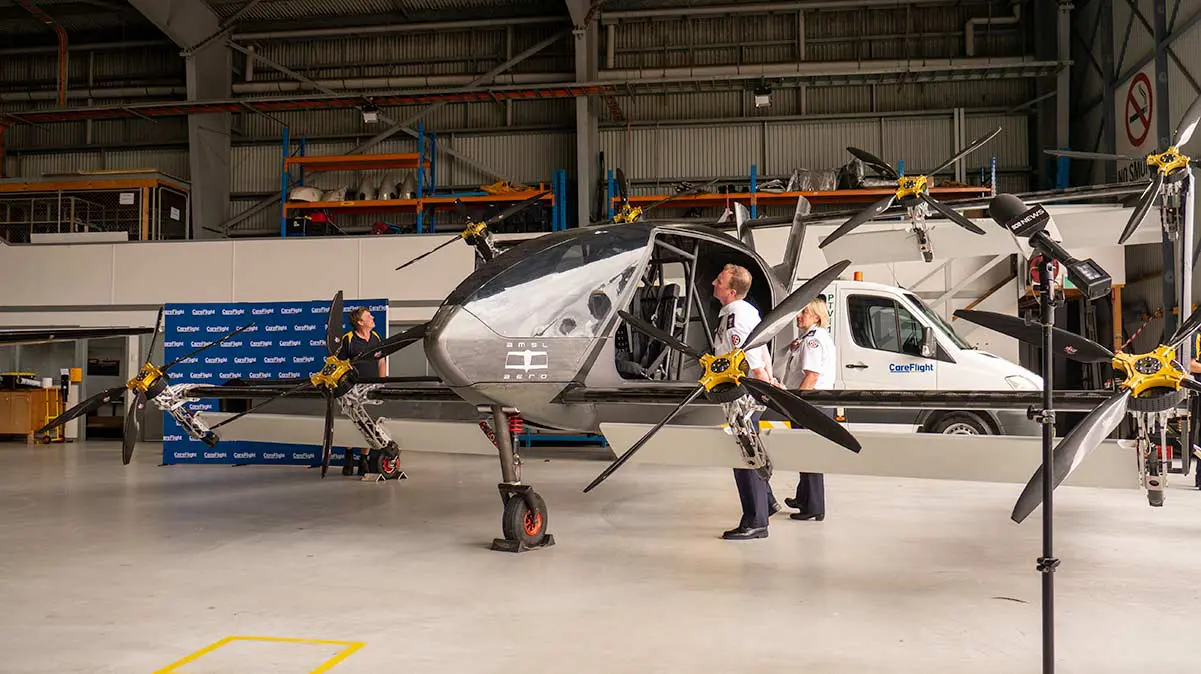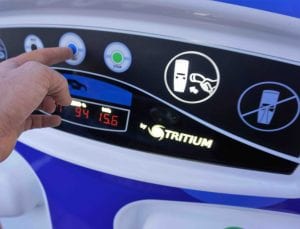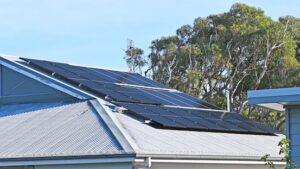An Australian start-up developing world-leading electric vertical take-off and landing (eVTOL) aircraft technology has won a share in $18 million of federal government funding.
AMSL Aero was selected alongside 11 other companies in round one of the Albanese government’s $32.6 million Emerging Aviation Technology Partnerships competitive grants program.
Another of the grant winners is Praxis Labs, which is working on developing structural solar surfaces for the wings of an upcoming fleet of Australian electric aircraft.
Swinburne University of Technology, Air Hub, was also awarded funds for its project to design and integrate a hydrogen fuel cell into a drone, with ground and flight testing.
AMSL Aero is behind the ‘Vertiia’ eVTOL aircraft technology, which it says is powered by clean electricity and hydrogen fuel and touted as the first eVTOL to be able to fly 1,000km.
AMSL Aero says its patented technology and use of hydrogen and fuel cells sets it aside from competitors, promising to make the Vertiia travel faster and further using less energy.
The Vertiia is designed for a cruising speed of 300km an hour and to travel 250km completely on battery power. While it takes off vertically, like a helicopter, once airborne it flies with the aid of fixed wings, in the same way as a plane.
AMSL Aero says that this combination provides the aircraft with significant flexibility in where it can land, while also providing greater speed and energy efficiency.
Two years ago, the company launched a prototype Vertiia in Sydney, in partnership with air-rescue organisation CareFlight, claiming it as the world’s first electric air ambulance.
The funding awarded this week will be used to identify regulatory barriers and to eVTOL manufacture in Australia and towards trials of air ambulances in regional NSW.
The company recently attracted a $5 million in private investment from coal baron and self-described “futurist” Trevor St Baker, though his St Baker Energy Innovation Fund.
On the solar plane front, Praxis Labs is an integrated PV specialist whose approach is to build solar cells into the structure of a manned aircraft, with no effect on aerodynamics, weight or overall efficiency.
“The Emerging Aviation Technology Partnerships Program will ensure our aviation sector remains at the forefront of innovation as it continues to develop and grow, particularly with the renewed focus on achieving net zero carbon emissions,” said transport minister Catherine King, on Monday.
“This program will directly support regional communities in improving health services and connections, as well as enhancing the capabilities of Australian businesses in delivering new aviation operations with increased technical complexity.”










